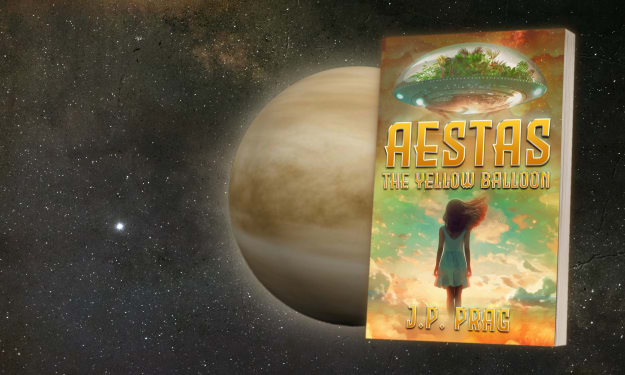The Riddle of Reality
A Paradoxical Philosophy

The notion that a physical effect necessitates its own physical cause seems to me to be a typically erroneous human assumption, comparable to say, the assumption that self-awareness is but an illusion caused by the material substrates of the brain: if such an illusion is only rooted in the physical dimension, what then, is an illusory experience if not a metaphysical one?
The inversion seems more intuitive however, yet is still logically consistent; Perhaps the physical cause of the effect of self-awareness (What we have traditionally called ‘the soul’) as we believe it to be today, proves that causality can have ontological interaction between physical and metaphysical dimensions.
In a way, our self-awareness is a recursive metaphysical effect of the prior physical cause of the brain. The brain causes it’s own “soul” and implicitly influences itself- in this regard, we too are just as much respective of the 1st law of thermodynamics as the universe is: we are closed systems, conserving our own energy. This might be considered debunked by the simple observation that if the physical universe is a closed system, how then can it create and then interact with a metaphysical dimension? To that I say again we tend to fall into assumptions: that the metaphysical is necessarily distinct from the physical, when after all, the very definition of the word “Meta” means “self-referential”, to the final goal of pointing out that the term “Metaphysical” actually means that the physical world is self-referential. In this case, the imagined notion of a “dimension” separate from a physical one is misleading, as it is not actually separate, but still a non-spacial dimension.
This line of reasoning suggests that existential reality has a progressive momentum to it, which would explain our experience of abstraction as a scalable process we notice down from lower forms of consciousness up to the very limits of our abstract abilities. The theory of Evolution describes such a momentum of conscious abstraction quite well.
However I want to dig deeper on how a closed-system influences itself; somehow and contrary to most, I do not find it obvious that an effect can possibly be caused– I am much more partial to believing that each effect recursively creates its own cause, and through this thought experiment, a mechanism can be built to understand a deeper meaning to the paradox of causality: How can an effect come into existence without a prior cause?
In this question, I find the prime and only quality to the metaphysical: it is itself, an effect, and so also the prime mover. Who says that the prime movement having set all things in motion, can only happen as a first cause in the sequence and not be perpetual? Why say that existence is a pre-requisite to there being an effect to begin with? Non-existence is perfectly inert and without qualities, but none of this strips it from being an effect, as we experience the effects of non-existence as an a priori truth all the time:
-If I am an effect, caused by my mother,
-and I did not exist before my birth, or even her own
-and my non-existence after death also remains constant,
-how then can I logically say that my non-existence after death will have been caused by my prior existence, but that I can not say that I was born as an effect of non-existence?
The two statements are sound and logical- to prove it let’s derive this syllogism further ad infinitum: My prior existence requires the prior existence of my mother and father, going back to the origins of life, going back to the existence necessary to spark such origins, going back to more existence having caused one which allowed for all the following events we mentioned, going back forever. Now within each fixed state, whether it is a particular existence, an origin of life, a mother and father or a resulting human being, it is clear that all of these successive states had not always existed prior to them coming into being and neither will they continue to exist. This serves to prove that all things do not exist except one: existence itself. How then, are we to distinguish existence from non-existence, without forms? The coming into being of all material things seem to be the very proof that existence is intertwined with non-existence.
Essentially, there is a clear relationship between causality being intrinsic, not to the “physical” world, which is an incomplete word, but to the metaphysical (self-referential) reality, the only thing which encompasses the causes and effects of consciousness, which is itself intrinsic to the dualistic reality which gives it it’s material and non-material attributes.
Resumed:
Causality is intrinsic to the dual existence/non-existence manifestation of the self-referential reality- “The”, referring to both the spacetime construct and consciousness.
It must be confirmed here that I equate the metaphysical to non-existence- they are both one and the same thing. Having also combined the physical world with the metaphysical by stating that the physical world is self-referential, this also confirms that I mean that existence (which holds the physical world) and non-existence, are also one and the same “thing” or “idea”.
Now to the sticklers who would say that I am conflating the birth of myself with non-existence as a dimension and that the material I was composed of still remained in existence prior to my birth, I ask you this: if in your estimation, non-existence does not exist, and that it is all existence “everywhere” and in “all of time”, then how can it be that the spacetime construct of which you speak had “a beginning”?
I assume here that you must conform to the material evidence we have about the origin but let’s go beyond it. Say that this construct began and will end within another construct, and that it is constructs all the way down- the best we can say about this statement is that the larger constructs are contingent, and that regardless of a construct or lack thereof, ideas themselves can cease existing, and by the very tenets of material reductionism itself this is stated quite clearly: the noumenal world exists on even without conscious beings and their ideas.
Therefore the idea that my birth is an effect caused by non- existence is consistent with material reductionism: the material of my future body always exists but the idea or specific arrangement of it does not yet exist; furthermore, any idea given to a specific arrangement of matter never exists anyway due to the constant changing of its composition, and so permanence is our negative illusion- yet out of such an existence, my apparently non-existing being along with its ideas persist to prove to you, my reader, that non-existence is ever present within the existential and material world you find yourself reading me from.
This is what I mean when I say that I am a monist about dualism: There is the one and only perfect ideal which results from the separation of the physical and non-physical reality we experience, and by virtue of our experience of it this ideal has no definition- otherwise it would not actually be what we are capable of conceiving of as “perfection”.
Causa sui effectus
The very conception of something supposedly “non-existent” such as perfection becomes then, necessarily proven by the whole argument thus far: that effects cause their own causes, ergo: the a priori conception of perfection is an effect caused by itself. This is a fancy way of saying that only perfection can create perfection therefore must create itself.
This is to me then, is the whole proof we have of perfection: that we can actually conceive of its existence without the possibility of conceiving it’s form or forms as it may be; and that perhaps, in all the perceived imperfections of our reality, we reflexively cause perfection to exist through our effect by conception. Therefore, if perfection must create itself, and we are the cause of perfection, then we are by symmetry of identity, perfect in our imperfection as well.
And so I have not come to define perfection as I had mentioned we can not do so, but I have tried to prove it’s existence without being able to define it, and thereby try to understand our relationship to it in order to identify an objective ideal.
This self-contained nature of reality, whether the material reductionists and the essentialists wish to quibble over what it means, will always remain without definitive meaning because it is itself, the axiomatic source of meaning.
What is the purpose of meaning you now ask? You might as well not exist.
James Sirois
-This is what came out.
About the Creator
James Sirois
I am a writer, film maker and traveler.






Comments
There are no comments for this story
Be the first to respond and start the conversation.